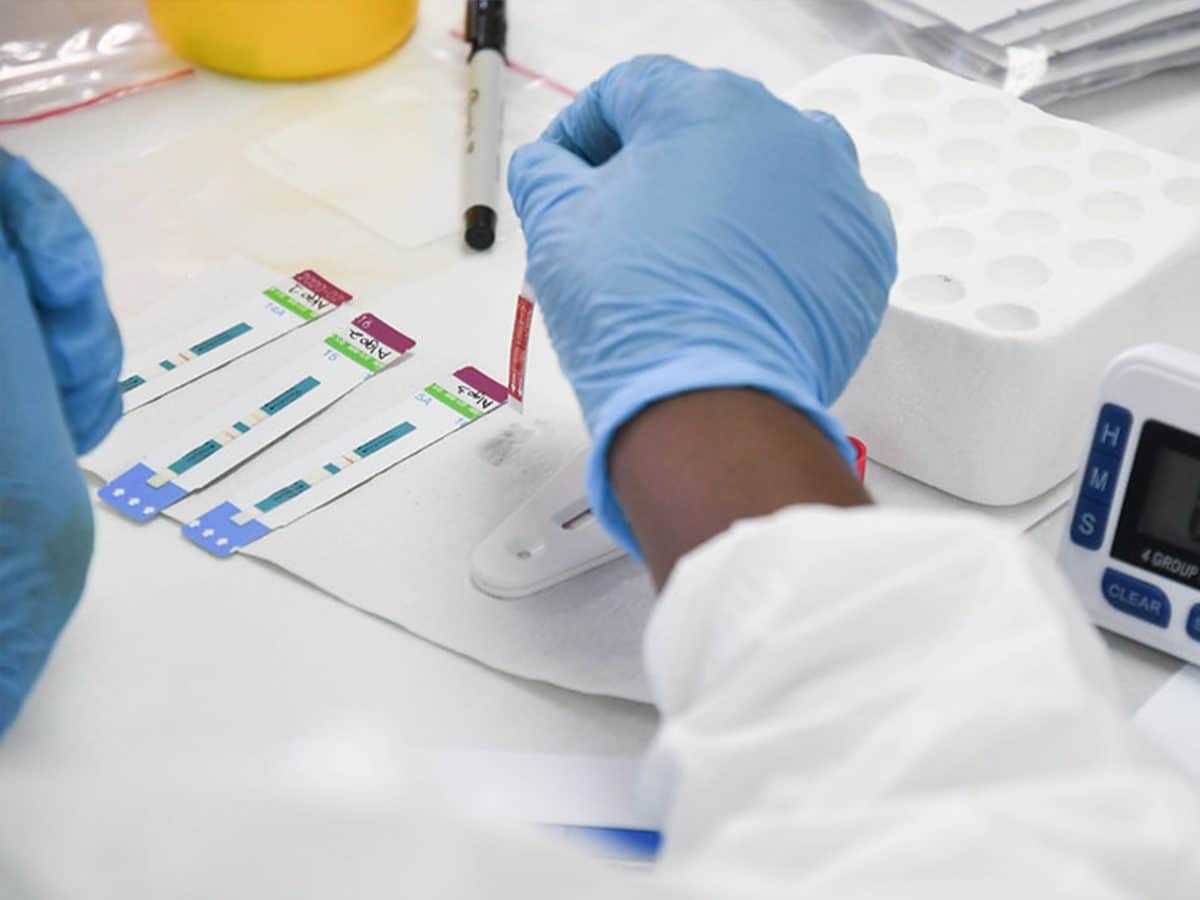No Increased Intimate Partner Violence Associated with Recency Testing
For people newly diagnosed with HIV in Rwanda, HIV recency testing is part of standard national HIV case-based surveillance, distinguishing recent infection – less than six to 12 months – from long-term infection, which indicates an infection that took place more than a year earlier. Rwanda also offers index testing and partner notification services as part of case-based surveillance.
In 2018, Rwanda adopted HIV recency testing for people newly diagnosed with HIV to inform HIV prevention and testing interventions to help the country reach epidemic control. In 2021-22, with support from the U.S. President’s Emergency Plan for AIDS Relief (PEPFAR) through the U.S. Centers for Disease Control and Prevention (CDC), ICAP collaborated with the Rwanda Biomedical Center (RBC) to evaluate HIV recency testing. Findings show that recent infections are more common in contacts of people newly diagnosed with HIV who, themselves, have been recently infected.
“For HIV care and treatment in Rwanda, recency testing means we can catch people earlier. It is estimated that only 84% of the population living with HIV in Rwanda know their status,” said Suzue Saito, PhD, Strategic Information Unit director and TRACE project director for ICAP at Columbia University. “HIV recency testing with index testing and partner notification services provides an important opportunity to identify new infections earlier and tailor prevention efforts to high-risk groups to help Rwanda reach epidemic control,” she said.
Conducted in 60 health facilities across five provinces in Rwanda, the study enrolled a cohort of 1,238 newly diagnosed individuals 15 years and older. As part of index testing, the enrollees shared the contact information of their sexual partners. Health care providers invited sexual partners they successfully contacted to health facilities for HIV testing and recency testing if HIV-positive.
Results show that out of 1238 people newly diagnosed with HIV, 98 (7.9%) had a recent infection at the time of HIV diagnosis. People with recent HIV infection were more likely to be under 35 years of age, female, and single compared to people with long-term infection. They were also more likely to identify as female or men who have sex with men. Their sexual contacts were also more likely to be younger than 35 years and were more likely to be male, casual partners.
The 1238 people listed a total of 1738 sexual contacts; 164 were linked to the 98 recent cases, and 1574 were linked to 1140 long-term cases. Of the 1738 sexual contacts, 789 were tested for HIV, 123 (15.5%) were HIV positive, and 9 (1.1%) were recent infections. Researchers identified a greater proportion of recent infections (3/75, 4%) among contacts of newly diagnosed people living with HIV who themselves were recently infected compared to those with long-term infections (6/714, 0.8%).
The study also evaluated intimate partner violence (IPV) among this cohort of individuals. “PEPFAR does not recommend returning recency results to newly diagnosed persons living with HIV partly due to lack of evidence that returning results will not increase the experience of intimate partner violence,” said Gallican Rwibasira, MBBS, MPH, head of the Division for HIV and STIs Programs, RBC. “We, therefore, decided to measure experiences of intimate partner violence prior to and following HIV diagnosis and the return of recency results in Rwanda as part of our overall study evaluation, and the results showed that intimate partner violence did not significantly increase after the return of recency test results.”
There was also no difference observed in experiences of IPV between recent and long-term study participants before or after the return of recency results. “We know that IPV is prevalent. What we hope is that programs can adopt strategies to mitigate IPV risks while finding ways to support safe disclosure and ensure access to appropriate services that prioritize safety,” said Eugénie Poirot, PhD, MPH, a senior technical advisor in ICAP’s Strategic Information Unit.
The complete study report is now available on the ICAP website. Results will continue to inform new ideas on the use of recency testing for prevention and testing programs, including index testing in Rwanda.
View Rwanda HIV Recency Evaluation Study Report
About ICAP
A major global health organization that has been improving public health in countries around the world for two decades, ICAP works to transform the health of populations through innovation, science, and global collaboration. Based at Columbia Mailman School of Public Health, ICAP has projects in more than 40 countries, working side-by-side with ministries of health and local governmental, non-governmental, academic, and community partners to confront some of the world’s greatest health challenges. Through evidence-informed programs, meaningful research, tailored technical assistance, effective training and education programs, and rigorous surveillance to measure and evaluate the impact of public health interventions, ICAP aims to realize a global vision of healthy people, empowered communities, and thriving societies. Online at icap.columbia.edu








